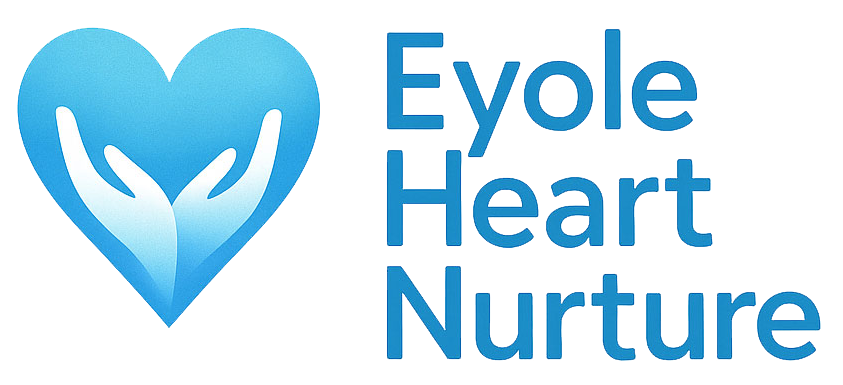The modern world often feels like a relentless conveyor belt of uncertainties. From global crises and economic shifts to personal health concerns and relationship challenges, anxiety has become an unwelcome but familiar companion for many. The constant stream of “what ifs” can be paralyzing, stealing our peace and making us feel adrift in a sea of unknowns.
At Eyole Heart Nurture, we recognize that addressing mental well-being is integral to nurturing a healthy heart. Today, we delve into one of the most prevalent struggles of our time: anxiety. We’ll explore practical strategies for managing anxious thoughts, alongside strengthening our faith and cultivating a deep reliance on God’s unwavering promises, even when life feels most unpredictable.
The Grip of Anxiety: What It Feels Like
Anxiety is more than just feeling stressed. It’s a persistent state of worry, fear, and apprehension that can manifest in various ways:
- Mental Overwhelm: Constant racing thoughts, overthinking, and difficulty concentrating.
- Physical Symptoms: Restlessness, fatigue, muscle tension, headaches, digestive issues, and sleep disturbances.
- Emotional Distress: Irritability, panic, a sense of dread, and a pervasive feeling of unease.
- Behavioral Avoidance: Withdrawing from social situations or activities that trigger anxious thoughts.
While anxiety is a complex issue with various contributing factors, for many, it often stems from a struggle with control and a deep-seated fear of the unknown.
The Anchor of Assurance: God’s Promises in Uncertainty
For those seeking to navigate the turbulent waters of anxiety, faith offers an unshakeable anchor. The Bible doesn’t promise a life free of trouble, but it consistently assures us of God’s presence, provision, and peace in the midst of our challenges. His promises are not platitudes; they are foundational truths designed to calm our anxious hearts.
Consider these powerful truths from scripture:
- God is Sovereign (Psalm 103:19): He is in control, even when circumstances feel chaotic. His plans are perfect, and His purposes will prevail. This doesn’t mean we won’t face difficulties, but it means they are not outside of His purview.
- He Cares for You (1 Peter 5:7): “Cast all your anxiety on him because he cares for you.” This is an invitation to release our burdens, knowing that God is intimately concerned with every detail of our lives.
- He is Our Provider (Philippians 4:19): “And my God will meet all your needs according to the riches of his glory in Christ Jesus.” We don’t need to fear lack or uncertainty about the future; God promises to supply what we need.
- He Offers Perfect Peace (Isaiah 26:3): “You will keep in perfect peace those whose minds are steadfast, because they trust in you.” Peace is not the absence of trouble, but the presence of God amidst the trouble.
- He is Always With You (Matthew 28:20): “And surely I am with you always, to the very end of the age.” You are never alone in your struggle. His presence is a constant source of comfort and strength.
- His Grace is Sufficient (2 Corinthians 12:9): When we feel weak or overwhelmed, His strength is made perfect in our weakness. We don’t have to face anxiety in our own limited capacity.
Practical Strategies: Bridging Faith and Well-being
While faith is our ultimate source of assurance, integrating practical strategies can help us manage anxious thoughts and cultivate a healthier internal state.
- Practice Mindful Prayer: Instead of just reciting words, intentionally bring your anxious thoughts and feelings to God. Lay them before Him, visualizing yourself releasing the burden. Spend time in silent listening, allowing His peace to fill you.
- Anchor in Scripture: Memorize and meditate on verses that speak to God’s peace, power, and provision. When anxious thoughts arise, actively speak these truths over yourself. Let God’s Word be the louder voice.
- Cultivate a Gratitude Practice: Anxiety thrives on scarcity and fear. Intentional gratitude shifts your focus to God’s blessings and faithfulness, even in small things. Keep a gratitude journal or verbally list things you’re thankful for daily.
- Mindful Breathing: When anxiety escalates, your breath often becomes shallow. Practice deep, diaphragmatic breathing (inhale slowly through your nose, letting your belly rise; exhale slowly through your mouth). This activates your parasympathetic nervous system, signaling your body to calm down.
- Limit Exposure to Triggers: Be mindful of news overload, social media, or conversations that consistently fuel your anxiety. Set boundaries to protect your mental space.
- Engage in Purposeful Action: Don’t let anxiety paralyze you. Focus on what you can control and take small, intentional steps. Often, action, even small, can disrupt the cycle of anxious rumination.
- Prioritize Self-Care (as discussed earlier): Adequate sleep, balanced nutrition, and mindful movement are not luxuries but essential tools for managing anxiety and building resilience.
- Seek Community and Support: Don’t suffer in isolation. Share your struggles with trusted friends, family, or a faith community. Sometimes, simply voicing your anxieties can lessen their grip.
- Consider Professional Help: If anxiety is overwhelming or significantly impacting your daily life, please reach out to a mental health professional. Therapy, especially cognitive-behavioral therapy (CBT), can provide invaluable tools and strategies. Faith and professional help are not mutually exclusive; they can work powerfully together.
The Journey to Lasting Peace
Moving from anxiety to assurance is a journey of continuous trust and surrender. It’s about learning to lean into God’s promises more deeply with each uncertainty life presents. It’s about recognizing that while we cannot control every circumstance, we can choose where we place our faith and how we respond to our inner world.
At Eyole Heart Nurture, we pray that your heart finds rest in the unshakeable assurance of God’s love and sovereignty. Release your anxieties to Him, embrace the practical tools He’s provided, and walk forward in the peace that surpasses all understanding.





